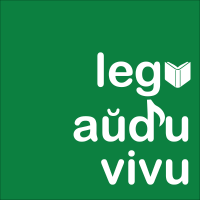How do you say rocking horse,meerkat, yak,seahorse (not walrus), pen holder in Esperanto?
de aausernameaa, 2014-februaro-07
Mesaĝoj: 22
Lingvo: English
aausernameaa (Montri la profilon) 2014-februaro-07 00:22:13
1. rocking horse
2. meerkat
3. yak
4. seahorse (not the walrus)
5. pen holder
Also, I want to translate the following complimentary,encouraging sentences/phrases (for kids) into Esperanto. Can you help me out some of these ? any translated sentences would help a lot.
1.Great
2. Keep it up
3. Great Job
4. You Rock
5. Incredible
6. Terrific
7. Marvelous
8. Bravo
9. Wonderful
10. Sensational
11. Awesome
12. Well Done
13. You're Amazing
14. Excellent
15. Fantastic
16. Phenomenal
17. You're a Winner;
18. Keep up the Good Work;
19. Great Answer
20. Aplus Work
21. Perfect
22. Clever
23. That's Incredible
24. Good Job
25. Good Thinking
26. That's Perfect
27. Not Bad
28. Very Good
29. Impressive
30. Very Impressive
31. Nice
32. Beautiful
33. Brilliant
34. That's Brilliant
Eltwish (Montri la profilon) 2014-februaro-07 01:09:57
Rocking horse: Vikipedio gives baskula ĉevalo, which seems like a good term to me, one meaning of baskulo being "seesaw". Lulĉevalo also gets a lot of Google hits, by analogy with lulseĝo, "rocking chair".
Meerkat: Surikato, again from Vikipedio. Comes from its Latin genus name Suricata, "Syrian cat".
Yak: Lernu dictionary offers either poefago (from the Greek) or gruntbovo (calque of the Latin). I'd probably use the latter on the offchance I had to talk about yaks.
Seahorse: I know that one! Hipokampo, from its Greek name meaning "horse sea-monster". The hippocampus in the brain is named after the seahorse. Seems marĉevaleto is also acceptable. The situation is the same in Spanish, where "caballito de mar" (marĉevaleto) is the usual term but hipocampo exists as well. Esperanto seems more comfortable with animal names closer to the scientific names, so perhaps hipokampo is used colloquially, but I don't know and neither appears in the Tekstaro.
Pen holder: Do you mean a jar on a desk for pens? Then plumujo or skribilujo.
For your encouraging phrases, some useful phrases are "Bonege!", "Plue!", "Ne rezignu!", "Bonan laboron!", "Mirinde!", "Brave!", etc. I'm not sure it makes much sense to translate the entire list since a lot of those prhases get most of their meaning from context (not all cultures would make any sense of "A-plus", for example), but perhaps someone else can come up with some good alternatives. Hope that helps!
sudanglo (Montri la profilon) 2014-februaro-07 11:18:48
However, Esperanto is really a language for adults. I don't see the point to teaching it to children (except as an educational exercise in schools). I would guess that most children do not have a need for international communication.
Teaching a national language to a child could give the child a valuable head start, taking advantage of the flexibility of mind of the child, but Esperanto is designed to be easy for adults to learn, and little advantage would be gained from instruction at an early age.
The best speakers of Esperanto tend to be those who started learning the language in late adolescence or during their student years.
From a psychological point of view the best plan for inducing a interest in Esperanto might be for the parents to use it as a kaŝlingvo for private parental communication. I can see that working with teenagers who then might be highly motivated to find out what the parents were saying.
karln (Montri la profilon) 2014-februaro-07 11:51:38
sudanglo:However, Esperanto is really a language for adults. I don't see the point to teaching it to children (except as an educational exercise in schools).such as: https://en.wikipedia.org/wiki/Propaedeutic_value_o...
Eltwish (Montri la profilon) 2014-februaro-07 15:51:02
sudanglo:However, Esperanto is really a language for adults. I don't see the point to teaching it to children (except as an educational exercise in schools). I would guess that most children do not have a need for international communication.The intended uses of Esperanto need not have any bearing on the uses of Esperanto. I don't see the person who learns Esperanto to read its literature, or to have a fun language to speak with friends at school, as any less an Esperantist as the globetrotter with penpals on every continent. If kids have fun learning Esperanto, and pick up some metalinguistic awareness along the way, des pli bone!
aausernameaa (Montri la profilon) 2014-februaro-07 15:55:31
Rikat (Montri la profilon) 2014-februaro-07 16:28:05
sudanglo:However, Esperanto is really a language for adults. I don't see the point to teaching it to children (except as an educational exercise in schools).Have you ever mentioned the existence of denaskaj parolantoj for propaganda purposes? If so, you're enthusiastic about Esperanto being taught to children when it suits your crusade.
robbkvasnak (Montri la profilon) 2014-februaro-07 17:29:27
erinja (Montri la profilon) 2014-februaro-07 17:53:30
Mattacchione4 (Montri la profilon) 2014-februaro-07 18:04:47




